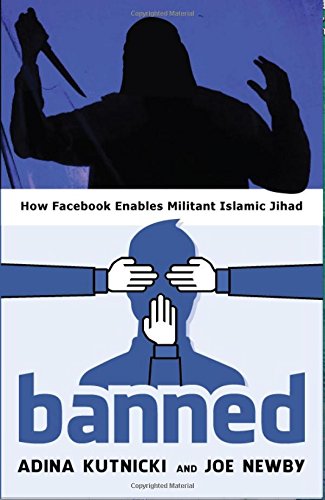
Expose: The “experts” are often wrong and sometimes even corrupt … “Dark Money” Trails
YES, the very same DM Gantz!!
ISRAEL NATIONAL NEWS | By Jonathan S. Tobin | June 16, 2022
Another reason not to trust a corrupt foreign and defense establishment: A former US general heading Brookings secretly worked for Qatar in connection with Benny Gantz. This questionable behavior exposes the problem of relying on “experts.”
One of the things that most offended the Washington establishment about former President Donald Trump was his complete disdain for “experts” of all kinds. In doing so, he was venting his own distrust of elites but also that of voters who look on the “inside the Beltway” crowd that has run foreign and defense policy under both Democratic and Republican administrations.
Such skepticism made sense when it came to America’s role in the Middle East. Trump was not only right to reject the failed assumptions of the establishment’s thinking about the need to pressure Israel and coddle the Palestinians. By discarding the conventional wisdom about the conflict, he enabled his foreign-policy team to make a genuine breakthrough with the Abraham Accords that normalized relations between Israel and several Arab and Muslim states. That was something the experts, like former Secretary of State John Kerry, said couldn’t be done.
But there was always more to the critique of the Washington establishment than just their devotion to failed ideas. Many former diplomatic, military and other government figures seem to fail upward after their public service had concluded by getting lucrative jobs in industry, lobbying and think tanks. This demonstrates not only the way some people were able to profit from their government work but also how private-sector companies and even foreign entities established influence with those who were supposed to be solely interested in upholding the interests of the United States.
The recent fall from grace of former four-star Marine Gen. John R. Allen is an object lesson in how this works.
Allen had a distinguished military career that culminated in being the officer in charge of the U.S. Central Command and then commander of American forces in Afghanistan. A favorite of former President Barack Obama, after retiring from the Marines he worked as an adviser to Kerry and then coordinated that administration’s ineffective operations against ISIS. He was a speaker at the Democratic National Convention in 2016 where he endorsed Hillary Clinton’s candidacy and denounced Trump.
Allen was a prime candidate for a senior position in a putative Hillary Clinton administration. But after Trump won, the ex-general had to settle for something that was almost as good. In 2017, he was rewarded with one of the most prestigious perches the foreign-policy elites can give to one of their own: the presidency of the Brookings Institution. A pillar of establishment thinking since its founding in 1916, it has been a major force in Washington, using its wealth and resources to advance liberal ideas. Indeed, so pervasive is its influence that it has been able to have an impact on mainstream Republicans, as well as on the Democrats and bureaucrats, some of whom aspire to join it after they are off the public’s payroll.
But Allen’s rise came to an inglorious end this month when it was revealed that he was the target of a federal investigation. As The New York Times reported, he is accused of secretly lobbying for the government of Qatar, lying to and withholding documents from investigators. The publicizing of a court filing by prosecutors has now led to his resignation from Brookings.
Allen’s alleged illegal conduct is embarrassing for Brookings. What makes it particularly outrageous is that while failing to disclose lobbying for a foreign government is not all that rare, doing so for a country like Qatar—allied to Iran and the main source of funding for Islamist extremists around the world (a role in which it has largely replaced Saudi Arabia after that government embraced a tacit alliance with Israel)—wasn’t an innocent mistake. Allen was part of a secret lobbying offensive aimed at helping Qatar withstand pressure from its more moderate neighbors who sought to isolate an emirate that is pro-Iran and linked to various terrorist movements.
Whether he ultimately faces prosecution isn’t important. What matters is that his exposure illustrates how the foreign- and defense-policy establishment operates as former government officials act as go-betweens for countries that are hostile to America and its allies.
What ought to also alarm friends of Israel is that Allen’s role in some dark lobbying is also connected to a pillar of the Jewish state’s own defense establishment. As Tablet magazine’s Armin Rosen reported earlier this week, one element of this story that deserves attention is that at the same time he was working for Qatar, Allen was also getting paid by an Israeli software company that was partly owned by former Israel Defense Forces Chief of Staff and current Defense Minister Benny Gantz to help broker a sale of its wares to the Qataris.
Gantz’s company, called Fifth Dimension, went bankrupt in 2018 before his entry into political life in 2019 at the head of the centrist Blue and White Party. As Rosen notes, it’s not entirely clear whether Gantz was personally responsible for the attempt to do business with Qatar, but it is, at the very least, suspicious.
The explanation for this seemingly inexplicable activity might be legitimate. It’s possible that Gantz was part of an effort to establish a back channel to Qatar. Though it is deeply hostile to Israel, Qatar has been utilized by Jerusalem to help broker informal ceasefires with Hamas in the Gaza Strip and to bribe the Islamist group with cash in order to maintain quiet at the border.
Whether or not that is true—and that is something that we may never get to the bottom of—the links between Gantz, Allen and Imaad Zuberi, a shadowy Pakistani-American “entrepreneur” who paid the general to work for Qatar and who is now serving a 12-year federal sentence for obstruction of justice, remain troubling.
What it all points to is a system that rewards officials, who, as in Allen’s case, appear to be deeply mediocre time-servers who are eager to do the bidding of the foreign-policy establishment and who then sell their services to all comers once they are free of the constraints of government service. As Rosen points out, these corrupt transactions are nothing unusual, especially when it comes to those who peddle failed liberal nostrums as expertise to the media and naive politicians.
Still, there should be some alarm bells going off about the way two senior military figures—Allen and Gantz—had no compunction about seeking a sweet payday from a country using its oil wealth to undermine the West and Israel while helping a rogue regime like Iran and its terrorist auxiliaries.
This case ought to be a wake-up call for both Americans and Israelis who need to stop being apathetic about the financial connections between their foreign and defense establishments, and Qatar.
The Qataris don’t just bribe former generals. In recent years, they’ve been trying to influence everyone they can, including for a time, prominent American Jews who were given free junkets to visit Doha.
Qatar owns the Al Jazeera news service, which regularly libels Israel, but has also engendered some hope of normalization by its willingness to allow Israelis to attend the soccer World Cup, which will be held this fall in the Gulf state. But the idea of Israel’s current defense minister paying a U.S. general to sell software to Qatar is not so much bizarre as it is an indication of why nobody should trust these people when they turn around and offer policy advice.
That figures like Allen are almost always wrong about the issues—and yet are continually sought out for positions of influence and to advise the media and governments while also engaging in appalling conflicts of interest—is a scandal. We shouldn’t just be joining Trump in expressing skepticism about the Washington establishment. Allen’s behavior ought to help generate the sort of general outrage that will lead to stricter rules about lobbying that might make his influence-peddling less profitable, as well as less of a cliché about retired generals.
Jonathan S. Tobin is editor-in-chief of JNS—Jewish News Syndicate. Follow him on Twitter at: @jonathans_tobin.
- Frodo Baggins Arrested For Child Sex Crimes - 10/06/2022
- White Hat Officer Booted from Gen. Berger’s Council - 10/05/2022
- Military Topples FEMA Outpost in Florida - 10/03/2022







